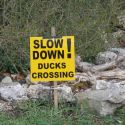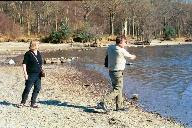Despite dire predictions - well, online yellow warning sign re thunderstorms - we head to the village of Kofinou for their classic Sunday kleftiko, lamb roasted slowly in an outdoor clay oven, a Cyprus specialty. Actually, while most frequently referred to as lamb, it can be, and perhaps more classically is, goat. And in both cases, the animal should not be too young as the slow cooking (several hours) in a clay casserole leaves it butter soft. An Atlantic article gives some insight into its history: “It is said that the dish is named after the kleftes , the 19th-century guerillas who fought the Ottomans. In an effort to keep their hideouts secret, the kleftes developed a method of cooking that produced no smoke, literally burrowing fire-pits into the ground in which they could bake, not grill, their meat, thereby protecting them from Ottoman detection”.
This stirs a rather faint memory of young backpackers in Scotland writing that they had acquired a whole sheep and cooked it buried in the ground, baking slowly until they returned a day or so later. Think that the sheep was acquired honestly, but the cooking method might well have originated with a desire to hide ill-gotten animals. Remember reading one highland history that left me to conclude that historically most highlanders made a living stealing each other’s cattle. In any case, our meal is delicious.
Following a conversation with Rachel about The Watch that Ends the Night, J and I discuss Barometer Rising. Check the Ontario Public Library download centre and find they have NO books by McLennan. Both of us mildly scandalised. Check openlibrary.org and find they do have one Hugh Maclennan book, “about Synapses, Neural transmission, including Synaptic transmission”. Obviously a different Hugh Maclennan. And no doubt a sign of our advanced age that we still see Maclennan as having iconic status.






